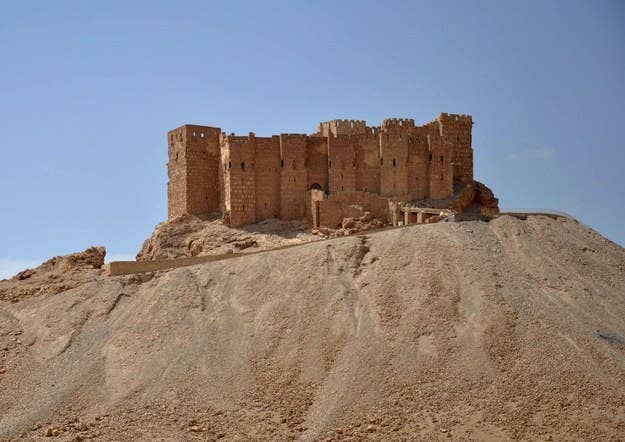
GAZIANTEP, Turkey — Much of the world is looking on with horror as ISIS storms the ancient city of Palmyra. Smugglers who trade in the booming black market of Syrian antiquities, though, say they sense a lucrative opportunity.
ISIS militants overran Palmyra on Thursday after rolling back the Syrian regime. On top of fears for the tens of thousands of civilians in the city, the onslaught has triggered a torrent of lament for its priceless remnants of history. Situated in an oasis 150 miles northeast of Damascus, Palmyra is home to one of the most important historical sites in the Middle East. It was a center of trade in ancient times and boasts well-preserved ruins dating back to the first century. Its art and architecture bear the influences of the many civilizations that once passed through its gates.
Now ISIS is threatening to destroy these historic remains — just as when it bulldozed the ancient city of Nimrud in northern Iraq in March. Yet the smugglers point out another key part of the unfolding cultural tragedy: Much of Palmyra's wealth of heritage will also be for sale. "ISIS took Palmyra for reasons of economy," said a 34-year-old Syrian who has been smuggling the country's antiquities into Turkey since early in the war. "I'm sure they will sell the artifacts."
Palmyra is important for ISIS strategically, sitting at a crossroads between the cities of Damascus, Deir Ezzor, and Homs. And it has access to oil and gas fields, noted the smuggler, who like the others requested anonymity because his work is illegal. He predicted that ISIS will loot anything of value from among Palmyra's ruins and artifacts — selling what it can to the regime and taking a cut from smugglers like him as they peddle the rest. "It will be a good business for us," he said.
On Wednesday, Syria's director of antiquities said that the government had removed hundreds of statues from Palmyra before its retreat, while news accounts described museum workers frantically working to ship out what they could. But in addition to what was left behind in the chaos, the area is home to a great deal of antiquities that have yet to be excavated. "If ISIS allows it, I will be the first to go back to my city and start digging," said another smuggler based along the Turkish border, a Palmyra native.
He added: "I'm sure they will dig."
A third smuggler was far less enthusiastic than his colleagues about Palmyra's fate. "ISIS is stealing everything from Syria — our oil, our gas, our artifacts, and our youth," he said.
ISIS is indeed committed to the kind of cultural destruction that it put on display in Nimrud, though it likely won't begin until it has Palmyra fully secured. Experts have been at a loss to describe the value of what will be destroyed. "Sick in my stomach," the author and historian Tom Holland tweeted as ISIS approached the city, while UNESCO's director-general warned in a statement that "the fighting is putting at risk one of the most significant sites in the Middle East."
But ISIS is also extremely savvy at lining its pockets — and Palmyra's antiquities present an ideal chance. Smuggled antiquities are a key source of revenue for the group. "The going assumption is that they're just going to be taking sledgehammers to everything," said Jonathan Schanzer, an expert on terrorism finance at the Foundation for Defense of Democracies in Washington, D.C. "But in all likelihood they have people standing on the sidelines ready to ship this stuff out."
He added: "Their propaganda videos will show the destruction. But we know they're using this stuff to enrich themselves."
The potential windfall from Palmyra was enough to have one former smuggler of Syrian antiques — who quit the business a year ago — thinking hard about getting back into it.
"I feel sad doing this job because we're stealing from the country, but we also have families to support," he said over beer in Gaziantep, a city near the Turkey-Syria border. "If they start smuggling the artifacts from Palmyra, then I'll start working again, because I'm sure there are a lot."

